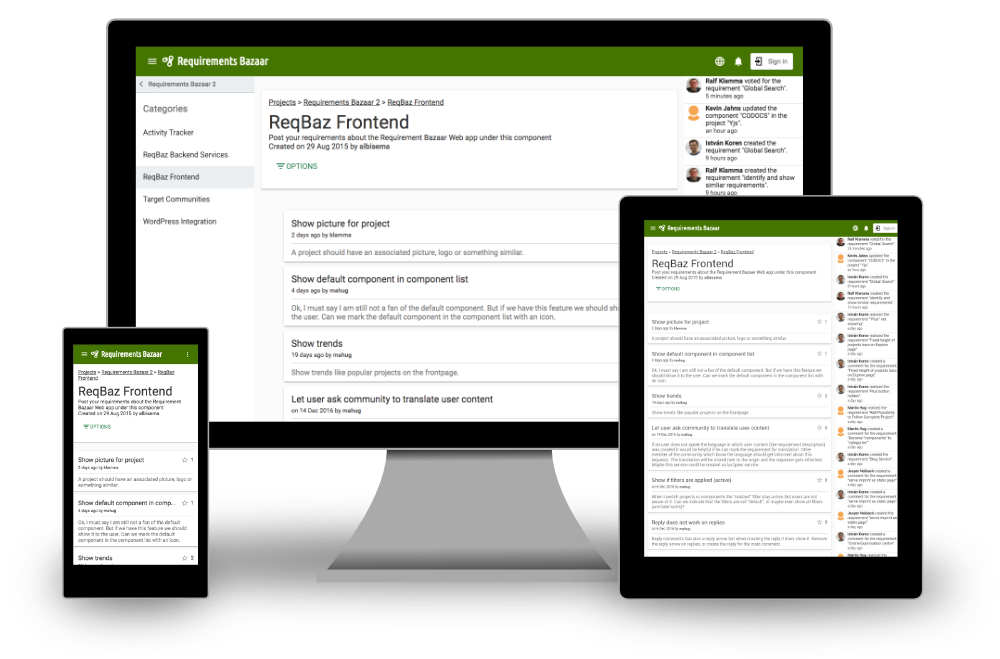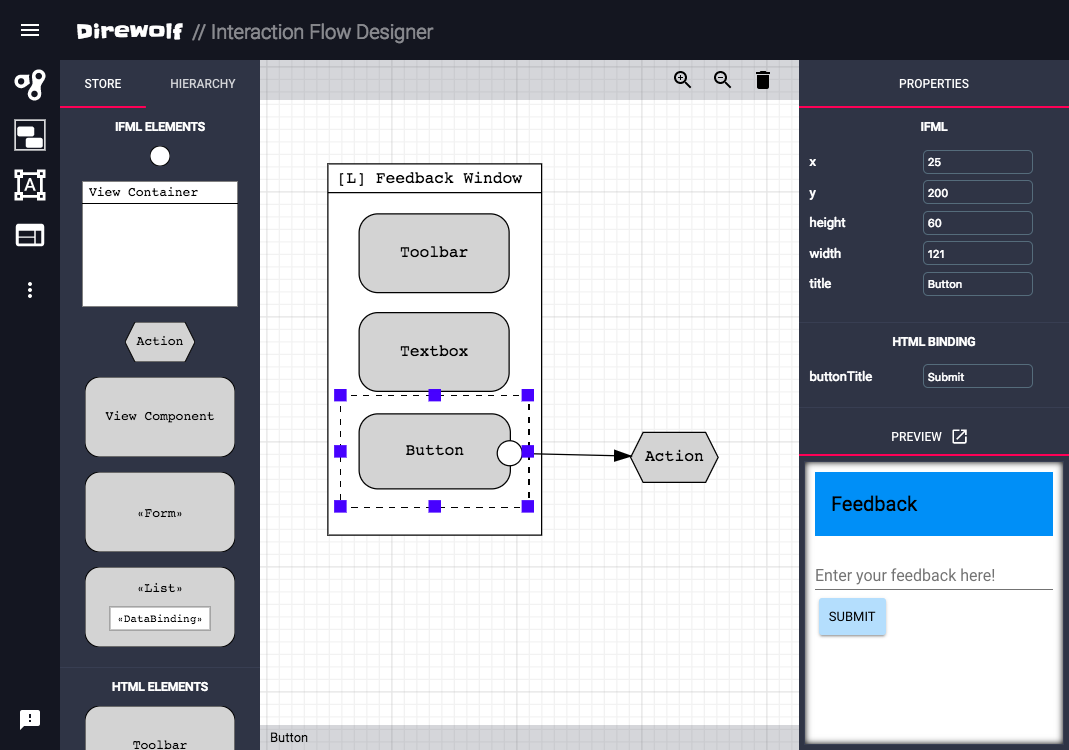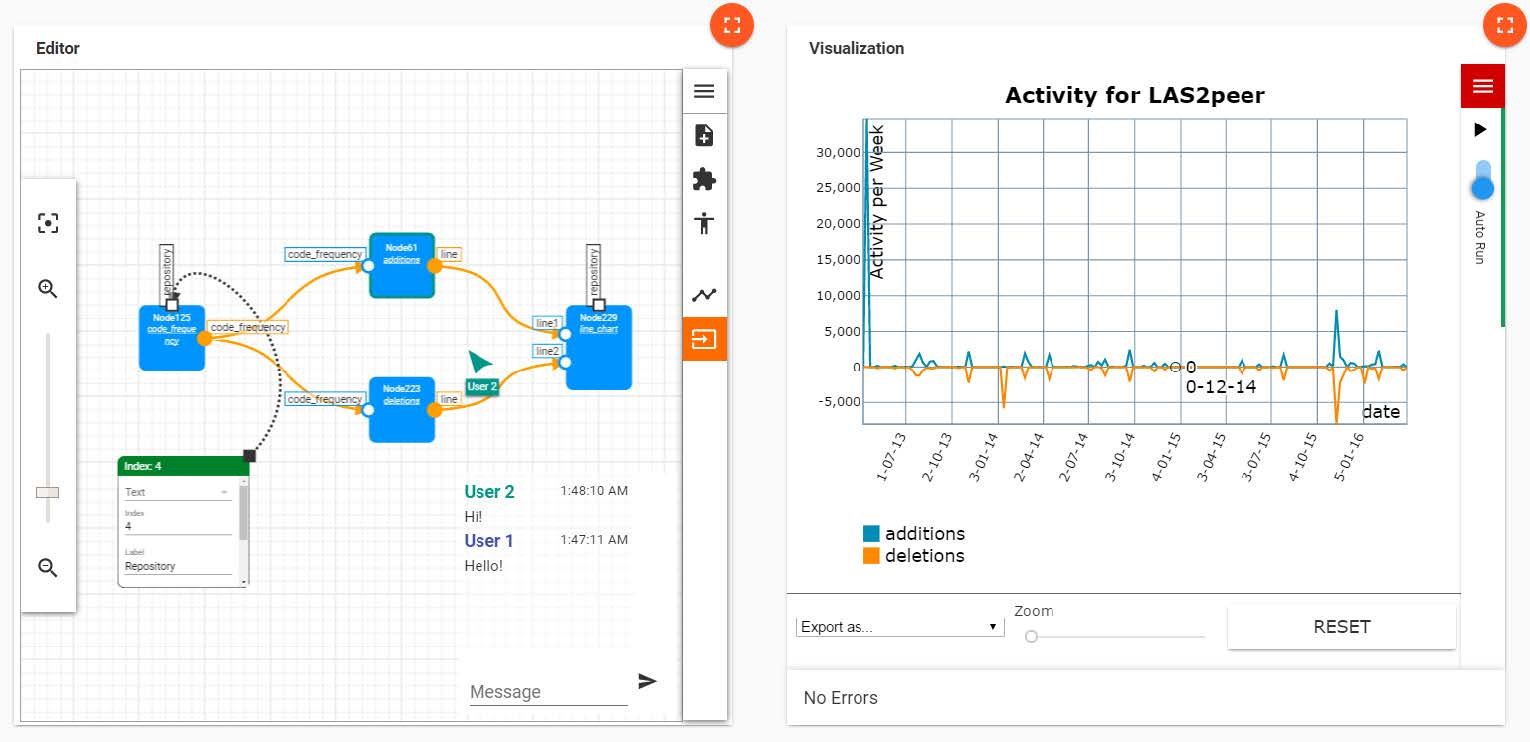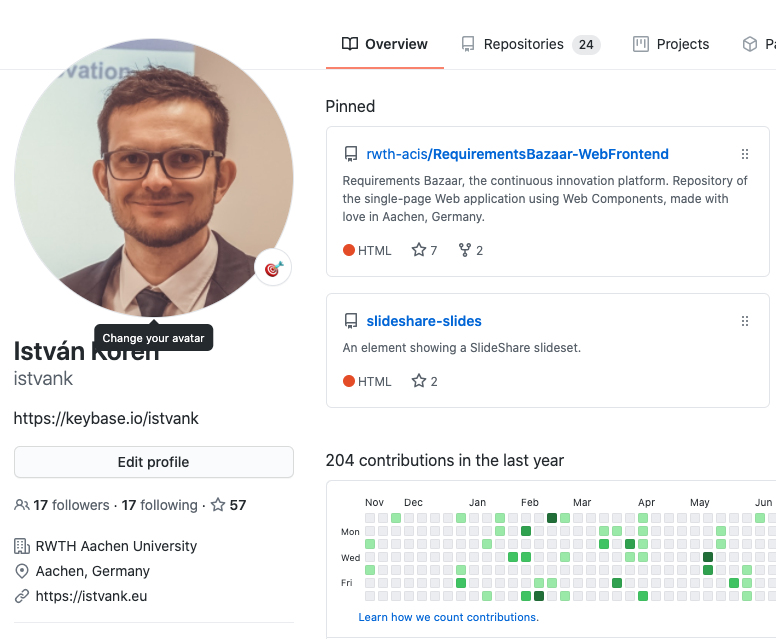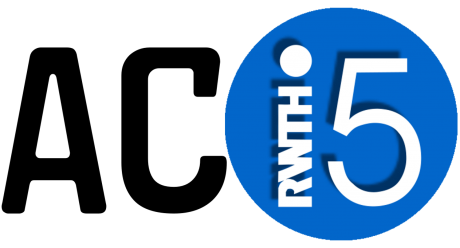Projects
See below a collection of the most important research projects and open source activities I contributed to.
Internet of Production (DFG CoE)
The Internet of Production is a DFG-funded cluster of excellence that is running since 2019. The vision of the Internet of Production (IoP) is to enable a new level of cross-domain collaboration by providing semantically adequate and context-aware data from production, development and usage in real-time, on an adequate level of granularity.
In my role as deputy coordinator for the infrastructure area, I am directly supporting our deputy CEO and principal investigator Prof. Dr. Matthias Jarke in creating a sustainable information system infrastructure supporting the ambitious tasks in data management, model-based systems engineering, and machine learning.
For more information, please check our website available on https://iop.rwth-aachen.de/.
Technology-Enhanced Learning
The research performed and described in my dissertation emerged from and was applied in the context of several European funded large-scale and local research projects in the area of technology-enhanced learning (TEL). As learning inherently deals with societal context changes, for instance in the ongoing digital transformation of workplaces, it is a highly rewarding area for information systems engineering research.
Besides working with colleagues from TEL in projects and publishing in several outlets of this research community, I participated and later actively shaped a number of summer schools on technology-enhanced learning.
In the following, find some projects in the TEL area that I worked on in the Advanced Community Information Systems group led by Priv.-Doz. Dr. Ralf Klamma.
Learning Layers (EU FP7)
Learning Layers was an EU Framework Program 7 large-scale integrating project running from 2012 to 2016, involving 18 partners with a budget of 13 million Euros. Core work packages included R&D activities towards innovative software for scaling informal workplace learning and their evaluation. The objective of the project was to develop a set of modular and flexible technological layers for supporting workplace practices in companies that unlock peer production and scaffold networked learning. This objective was addressed with various mobile apps and social software services on top of a scalable, light-weight infrastructure that allows for swift federated deployment in highly distributed and dynamic settings.
Our group was the work package leader for the integration tasks. We built a state-of-the-art containerized approach with Docker and an OpenID Connect authentication and authorization framework, that is still running and powering our apps. I significantly helped organizing the so-called developer taskforce, a community of all PhD student developers in the project.
The final project results are published on http://results.learning-layers.eu/.
WEKIT (EU H2020)
The WEKIT project was a consortium of twelve partners from six countries and ran under the Horizon 2020 funding of the European Commission from 2015 to 2019. The objectives were to develop an open technology platform for augmented reality experiences, to augment training in situ with live expert guidance and to create a roadmap for augmented reality learning together in a community of stakeholders. The application cases were in aeronautics, medical engineering and space.
Our tasks included the setup and operation of the community-based requirements engineering using Requirements Bazaar. We were also work package leader of the dissemination work package. At the end of the project, I was in charge of planning and implementing an exhibition stand at AWE Europe 2018 in Munich (Augmented World Expo), one of the largest international gatherings of the augmented reality industry.
AR-FOR-EU (EU ERASMUS+)
The AR-for-EU project started in 2017 and ran until 2020 under the ERASMUS+ funding scheme of the European commission. Together with five partners, the aim of the project was to create two multidisciplinary teaching courses (basic and advanced) on the topic of augmented reality that are suitable as specialization in all participating fields of computing, information and communication technologies, and media. Based on specific disciplines taught at the partner universities, the project produced digital open educational resources, interactive e-books and practical exercises.
Open Source Contributions
Open source software development plays an active role in my research and teaching. For instance, I have been a speaker at the FOSDEM open source meeting in Brussels for seven years in a row. Beyond, all the thesis work of students supervised by me has been published on GitHub. In teaching lab courses and project meetings, I regularly give workshops on large-scale open source development, with contents such as source code versioning with Git and continuous integration with Jenkins. The research artifacts of the projects mentioned above are accessible with permissive licenses like Apache 2.0 or MIT.
Below, you can find some of the highlights of my contributions to the open source world.
